Back in June, we were lucky enough to take a look at the Matebook X Pro, which is the top of the line Windows laptop offering from Huawei. Sadly, the reality is that it’s very difficult to justify the huge cost for such a device. Fear not, Huawei has other devices in its laptop range and the Huawei Matebook 14 is a far more affordable device … but with some compromises made.
Coming to market at $2,499.00 the Matebook 14 is far from a cheap and cheerful option; in fact, it’s going to get a pretty wide berth from many due to the price alone.
There’s a lot inside to justify the price, for those who need that level of inclusion, it ultimately that’ll be the question for buyers – do I need a $2,499 laptop this year? Especially when a laptop half the price might do.
What is it?
The Matebook 14 is — no surprise here — a 14-inch notebook in a 3:2 aspect ratio with a lot of other trimmings. The full size keyboard has a delightfully smooth touch to it which adds to the feel of this being a machine for someone who uses their laptop a lot – whether that’s as a workhorse, potentially as a desktop replacement and even for casual gaming. The specs are right up there and there are some delightfully well thought out features.
Hardware and Design
The model of Matebook 14 coming to Australian shores is grey chassis with a 10th generation Intel Core i7 10510U processor giving it plenty of grunt. To back up the processing power there’s 16GB of RAM, a dedicated MX350 video card and it’s running on a 512GB SDD which makes the boot times into Windows very quick. The whole package weighs 1.53kg and unlike other laptops we’ve looked at recently, the 56W USB-C charger is equivalent to a large phone charger, can charge your phone as well and weighs very little. It’s also worth mentioning that (as it’s USB-C) providing the charger delivers sufficient power, the Matebook 14 doesn’t need a proprietary charger.
The connectivity suite is pretty good but does have one glaring let down in that the Wi-Fi only supports up to 802.11ac (Wi-Fi 5) and not ax (Wi-Fi 6). Just to qualify that statement a little; I know many houses don’t yet have Wi-Fi 6 but if you’re spending this much on a laptop it’s a long term investment and the likelihood is that your next router will be Wi-Fi 6 capable.
Outside of that desire for the Wi-Fi to have been one step better, the connectivity is exactly what I expect from a physical and wireless perspective. There’s Bluetooth 5.0 and an array of ports including 1 x USB-C Port (Charging, Data Transfer & Display Port Support), 1 x HDMI Port, 1 x USB-A (USB 3.0, 5V/1.5A Charging Support) and 1 x USB-A (USB 2.0, 5V/1.5A Charging Support).
The screen is a highlight
We mentioned last week when the Matebook 14 was officially announced to Australian shores, that the screen has a tiny bezel, runs high resolution (2160 x 1440), has a massive viewing angle and 10 point touch sensitivity. An interesting point of note as someone coming from a 19:9 ratio is that the 3:2 aspect feels larger than it actually is.
What’s really stunning about the screen is just how little bezel there is. Huawei calls this a “full view” display and with 90% screen ratio it’s easy to understand why. The combination of the high resolution and the screen to body ratio results in a great viewing experience for either productivity or multimedia consumption.
Slick design features
As we spend more and more time online, it’s important to consider privacy. Particularly when everything we carry has a camera in it. The Matebook 14 — as is the case on the Matebook X Pro — has a “hidden” webcam among the function keys. Now there are good and bad elements to this. The good is that you can hide your camera away and even if your system becomes compromised, without the camera being exposed then no one can capture images of you. The bad is that it’s very low on the chassis and presents that delightful view of your nostrils to everyone on your Zoom meetings.
In another “similar to the Matebook X Pro” moment, the power button is deliberately removed, while remaining easily accessible and adjacent to the keyboard layout. This is important for a couple of reasons; the power button isn’t inadvertently tapped when touch typing and the second is that it includes a fingerprint sensor for quick and easy login.
One of the design features that users won’t see is actually and quite literally, really cool. They have a special “shark fin” design with their fan vent that promotes higher airflow, keeping your laptop cooler which makes it far more comfortable to use on your lap. That lower temperature also means that the performance of the machine is maintained longer.
Solid performance in all areas of computing
We already mentioned there’s plenty of grunt, but how much grunt do users need? That absolutely depends on your use case and for me, the i7 with 16GB memory, an SSD boot drive and dedicated video meets my needs with power to spare. While it would be easy to criticise, even while playing with video rendering or casual gaming the Matebook 14 performed admirably with only a minor time deficit to my desktop PC.
Daily I use the usual array of services and apps: Web, Office, emails, a bit of video/audio editing and gaming. While the MX350 won’t handle the latest and greatest games, it handled Team Fortress 2, Diablo 3 and a bit of COD with no real hassles.
The battery packs 56Wh of power and — unless you’re doing a lot of processor-intensive work — easily lasted for a full day of work. I was able to stream video for significant periods of time during the day and still see the evening out with enough battery. I was impressed with how quickly the battery charged too, not as quickly as phones with quick charge do – but impressive none the less.
What really tickled me about the Matebook 14 is the fact that it just worked. Once it was set up, I packed my personal laptop (daily use) up and used the Matebook 14. It fits into my daily life easily, did exactly what I wanted and needed of it without causing any moments of longing for my own hardware.
Huawei Share
In our earlier mentioned review of the Matebook X Pro, we covered off Huawei Share. The simple fact is it’s a cracking feature that I really like and the experience hasn’t changed.
Huawei share requires a Huawei, NFC enabled phone to utilise it. To connect, you just tap your smartphone to your MateBook. This uses a direct connection between the two to directly communicate and doesn’t require Internet access to do so.
The feature allows you to fully control your phone from your laptop, drag and drop files between the two and real-time editing files on your laptop. It’s so easy to use Huawei share and brings a feeling of integration between Android and Windows that I’ve not experience at this level before.
Conclusion
So the Matebook 14 has some really good specs, performs well and presents exceptionally well. But there are some areas where it may not be good for some users. I’m used to a wider screen and struggled a little with that adjustment in the early stages. If you’re used to ultra-portable options, then this will feel quite heavy in comparison and you may need to get a new carry bag if you’ve got one specifically for a smaller device.
Where the Matebook 14 makes its case to become part of your daily digital life is the great presentation, high specs and ease of access. It’s not a cheap option at $2,499.00 but I would confidently say it’s a solid investment if you can stand to foot the bill. For many though, that price tag will absolutely be a deterrent when you can pick up a very acceptable laptop for under a grand. I feel like a price tag of under $2000.00 to be more on par with the likes of 13-inch Macbook Pro range would make it more enticing.
The Matebook 14 is great hardware and stood up to daily life with power to spare. It would be great in a corporate environment, general workspace or even a desktop replacement providing you’re not playing high-end games.


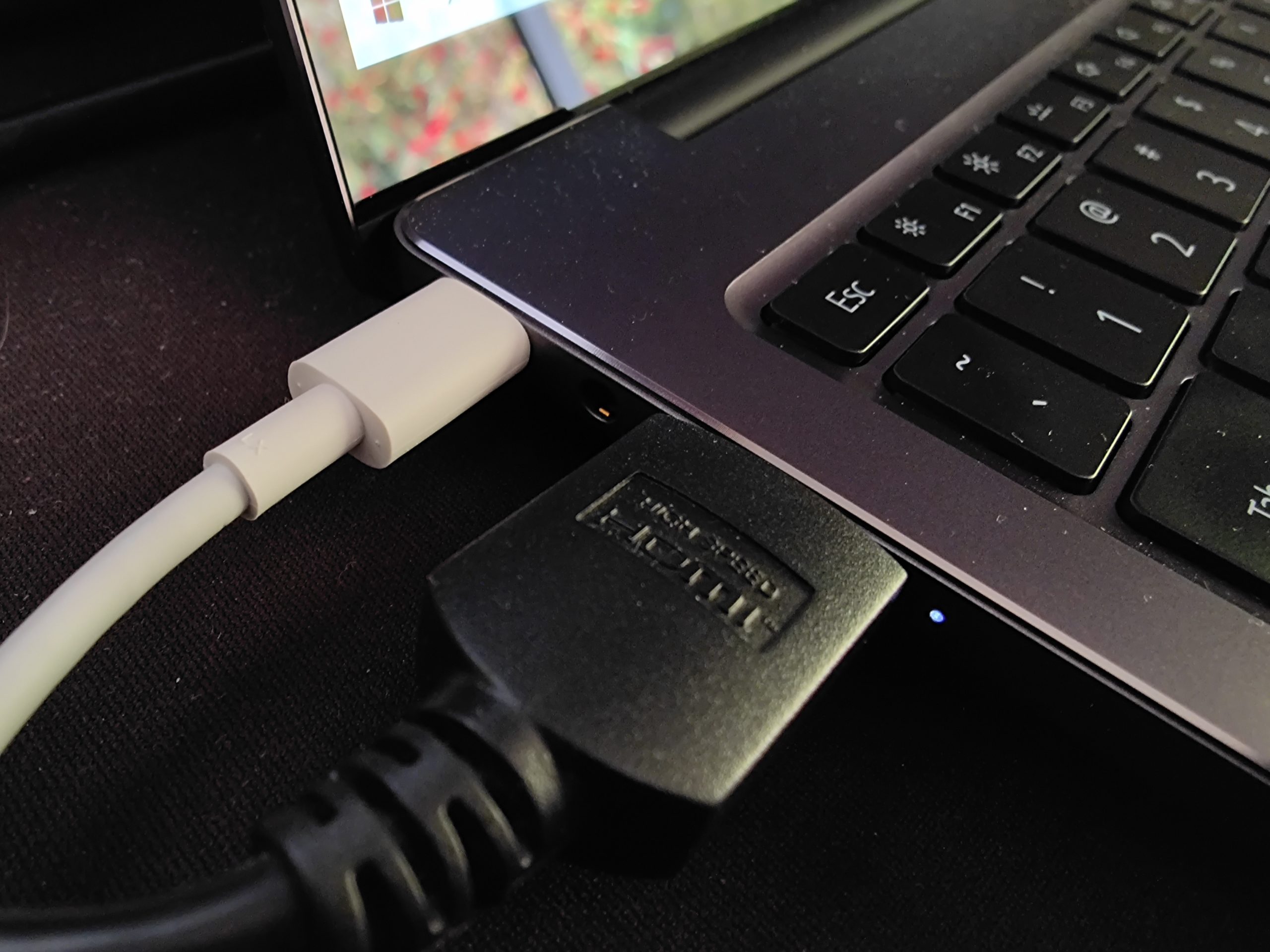
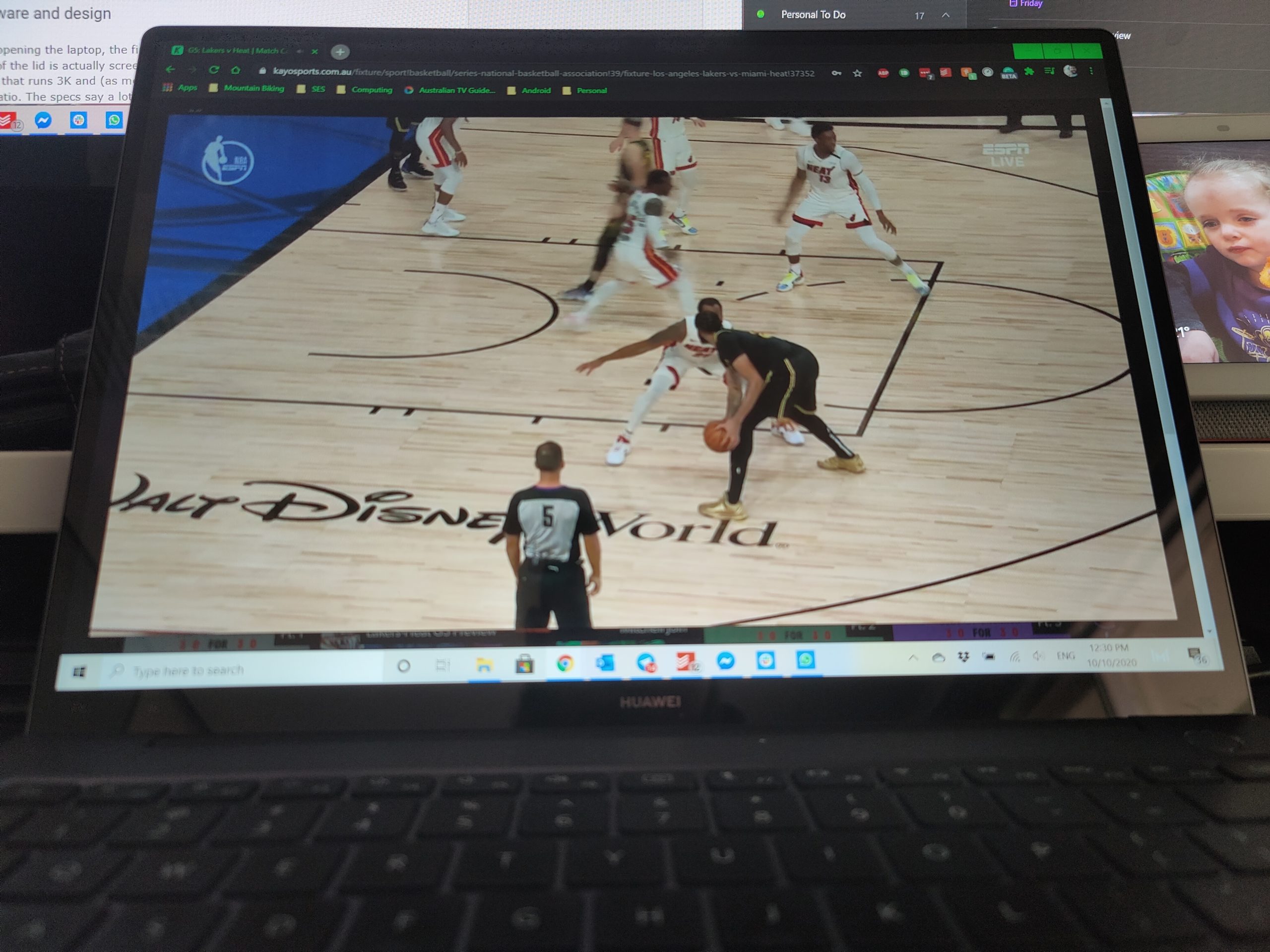
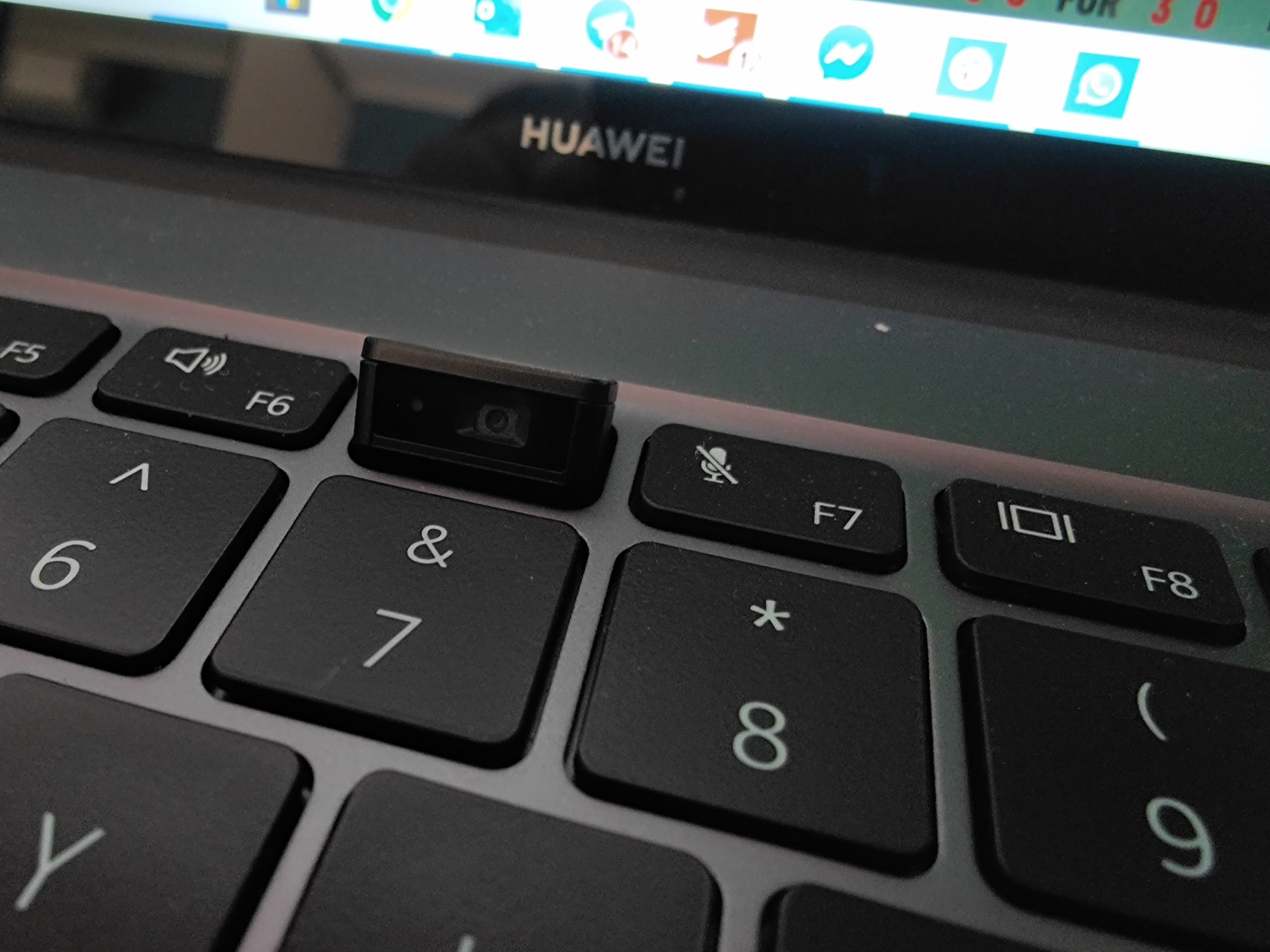
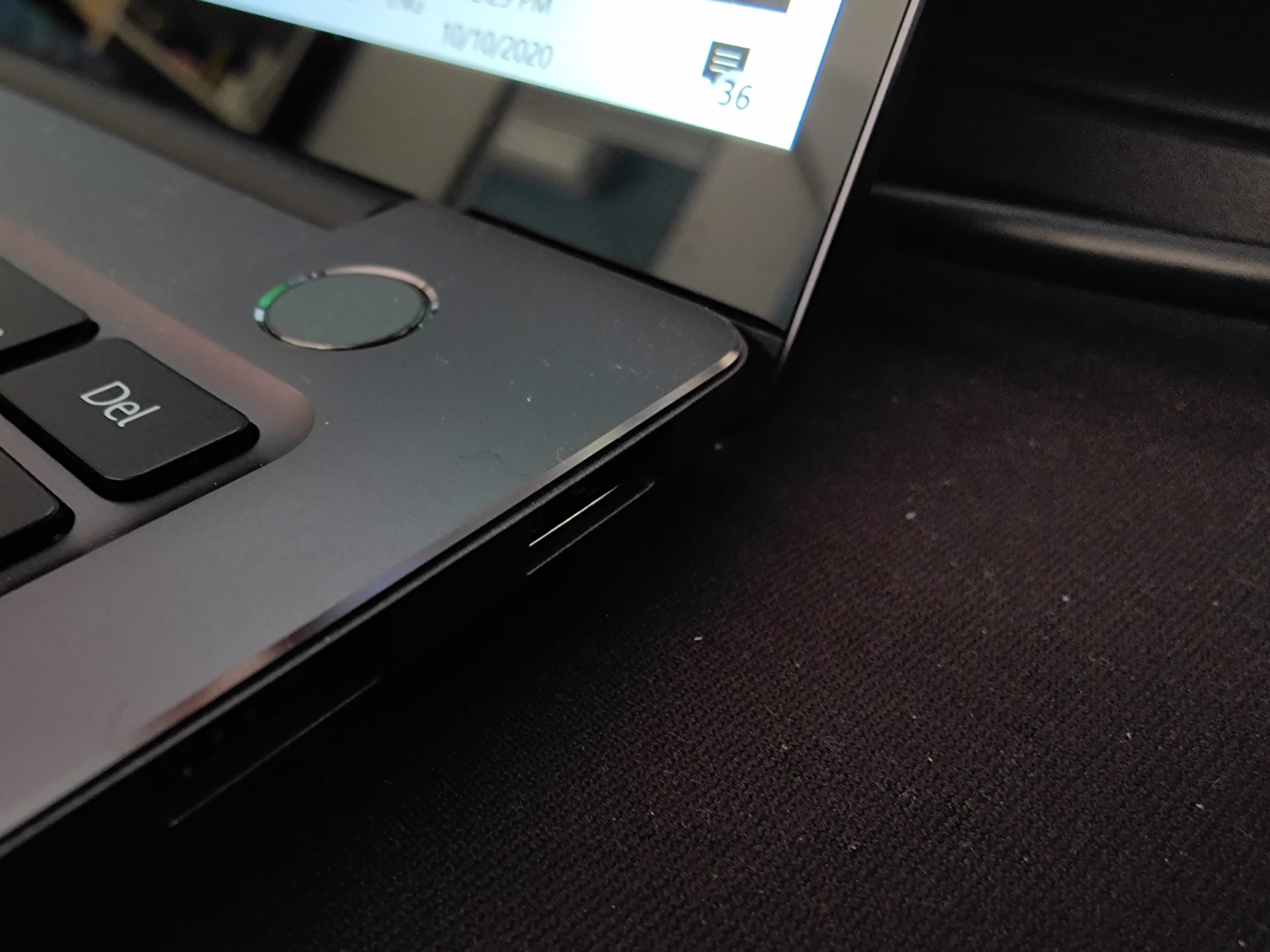
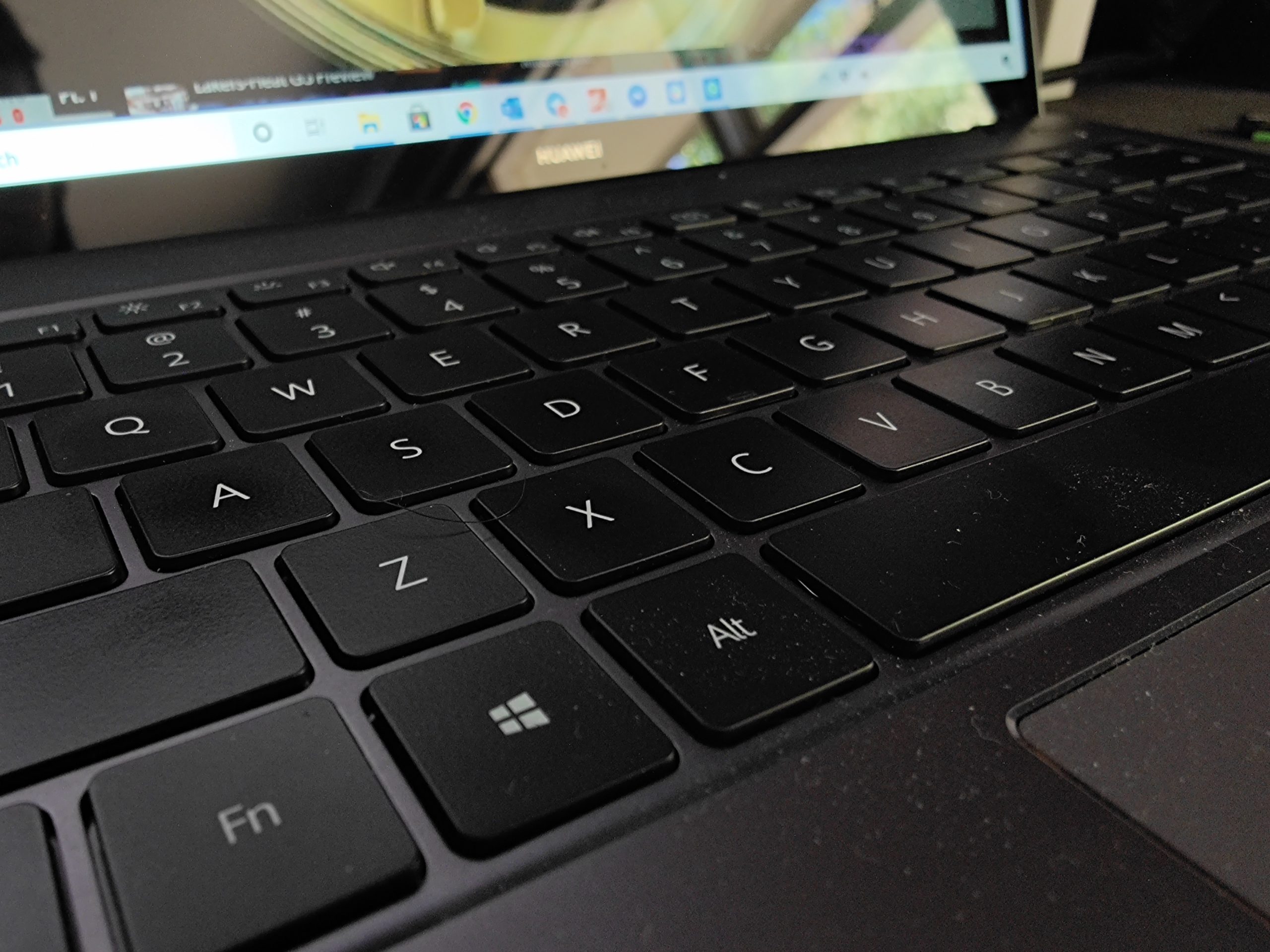
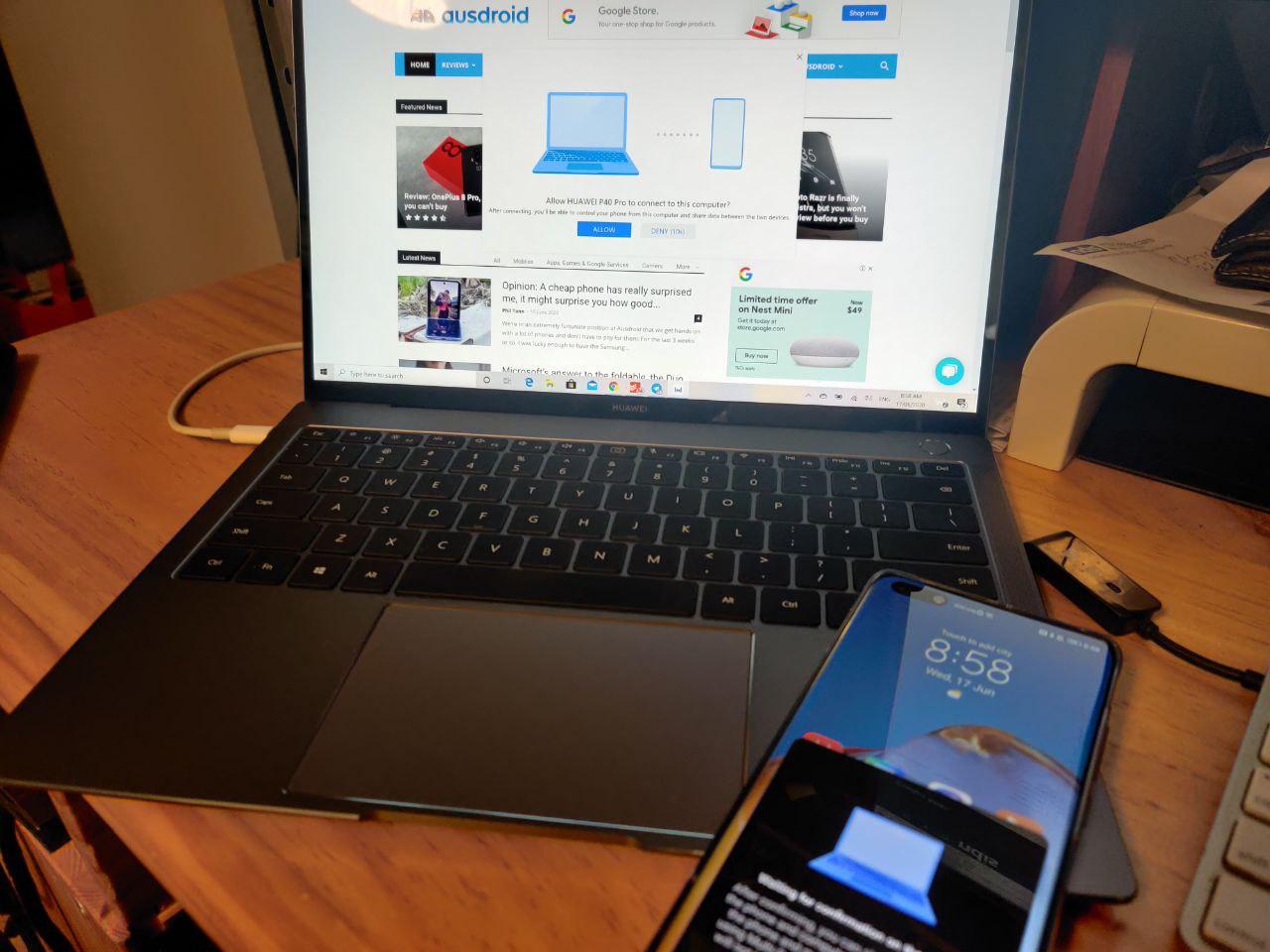
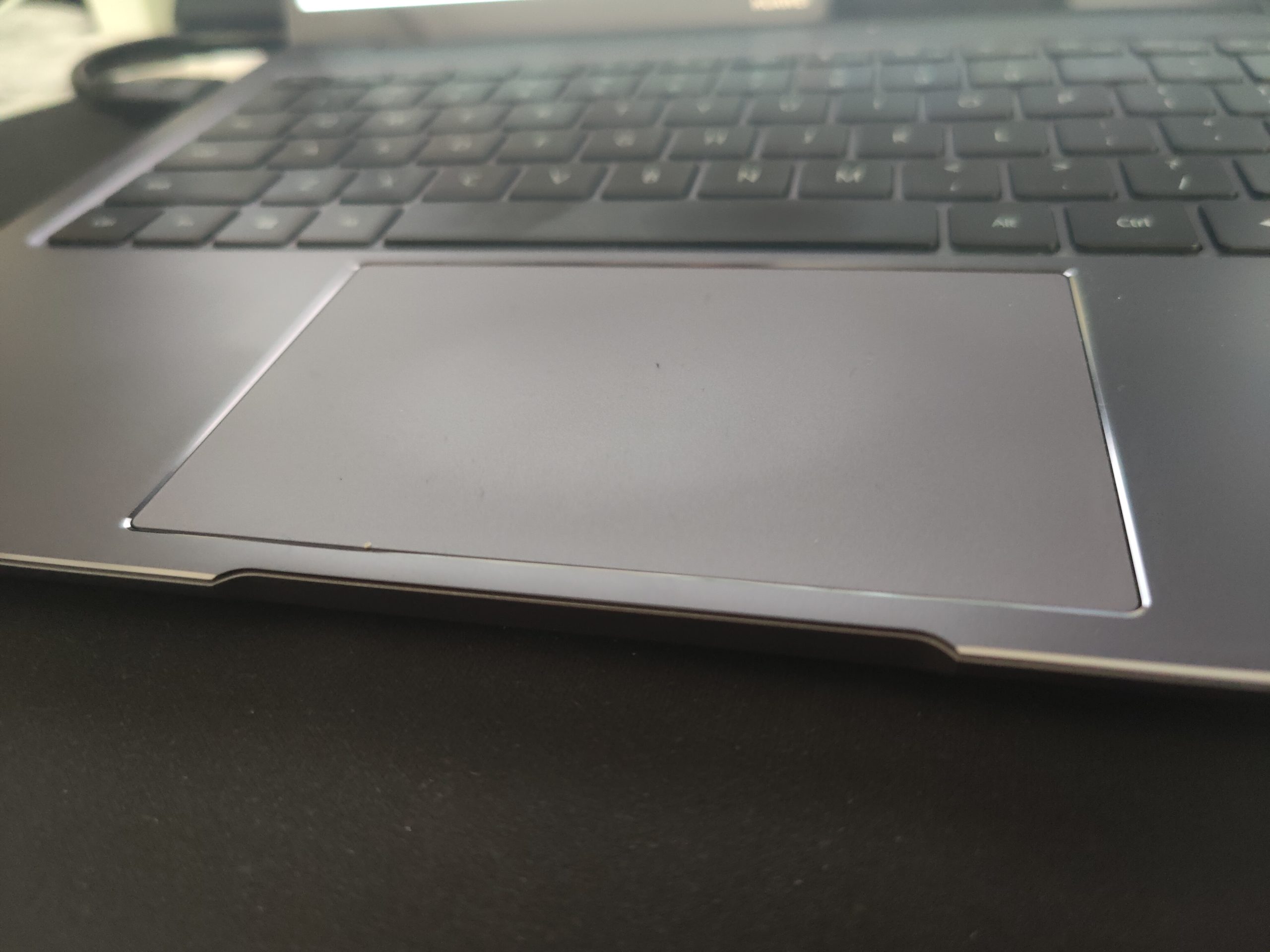
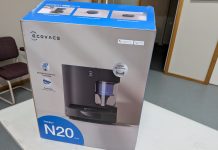


Phil, how does this compare to the Lenovo IdeaPad C340 14 inch you reviewed back in November last year?
Lenovo IdeaPad C340 14 inch – https://ausdroid.net/2019/11/26/lenovo-ideapad-c340-practicality-and-capability-in-a-daily-use-device/
For a tech site would suggest you discuss the technical details a bit more, namely the CPU – we’re in the middle of a hilarious era when i7 could mean gen-8 through to gen-11. In this case we’d be paying top dollar for warmed over ’10th gen but really its 8th gen rehashed’ 14nm Comet Lake U. This is annoying because the only reason the corporate machines do this is for vPro which in this case is irrelevant. In particular the way the thermals/power limit impacts the perf would be interesting. Also there’s no discussion on thunderbolt. Is it there,… Read more »
any concerns for ongoing software support for Huawei?